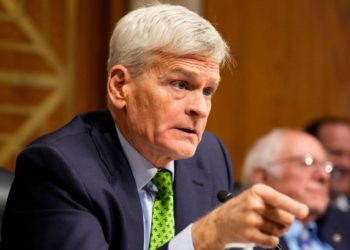Would a military officer disobey a lawful but unethical order — unethical in the sense that it violates the officer’s professional code? We may be on the verge of finding out.
The Trump administration has sent Marines to the Los Angeles area to join the National Guard troops already there. At the moment, the Marines have been deployed to help protect “federal functions and property,” as President Trump’s memorandum specifies — not to engage in broader domestic policing. But that could quickly change.
As a general matter, if the president were to order members of the military to engage in domestic policing, the order would almost certainly be legal. Not only does the president have constitutional authority to protect federal property and functions, but the Insurrection Act of 1807 also sets a very low bar for deploying the military for domestic law enforcement. Furthermore, military ethics dictate that officers must obey lawful orders. All this suggests that officers should comply if they are ordered to engage in domestic policing.
If the president were to order officers to engage in domestic policing that was unnecessary (because it could be adequately handled by local law enforcement), politically partisan or reckless, the order would still almost certainly be legal — but according to the officers’ professional code, it would also be unethical. And military ethics dictate that officers should reject unethical orders.
Military officers in such a situation would be mired in a contradiction: Their professional duty would compel both compliance and defiance.
Military professional ethics require nonpartisanship, so that the military does not become a political tool and jeopardize its aim of serving the national interest. Those same ethics also strive to keep the military’s conduct limited to its area of expertise — namely, warfighting. The military’s core competence is defeating enemies in mortal combat; for soldiers, Marines and sailors, a kill is often a victory. The same cannot be said for domestic policing, where the hope is to minimize the use of lethal force.
Because their expertise is limited in this way, the armed forces have “carefully delimited roles in law enforcement,” as explained in an open letter in 2022 signed by a bipartisan group of former secretaries of defense and chairmen of the Joint Chiefs of Staff. Using active-duty forces in a law enforcement role should be done only “as a matter of last resort,” as Mark Esper, defense secretary late in the first Trump administration, explained at a news conference announcing his opposition to domestically deploying military forces during the civil disturbances in the United States in 2020. (Mr. Trump later fired him.)
What, then, are military officers supposed to do if lawfully ordered to violate their professional ethic? Within the armed services, the Army’s doctrine most comprehensively addresses the problem, and it offers little help. It reads: “We serve honorably — according to the Army ethic — under civilian authority while obeying the laws of the nation and all legal orders; further, we reject and report illegal, unethical or immoral orders or actions.”
The passage simultaneously commands obedience and disobedience to lawful but unethical orders, leaving officers without a clear answer on how to proceed.
Scholars of civil-military relations have engaged in long-running debate on this issue. Those who side with obedience emphasize the importance of civilian control of the military. Proponents of disobedience respond that the Army ethic protects not just civilian control of the military but also against the civilian misuse of the military. The foremost scholar of civil-military relations, the political scientist Samuel P. Huntington, suggested that the dilemma was irresolvable.
In recent years, when the dilemma threatened to rupture civil-military relations, high-ranking authorities stepped in to defuse the crisis — as when Mr. Esper publicly invoked the military’s ethical principles to oppose domestically deploying the military in 2020. Mr. Esper may have narrowly saved service members from having to decide whether to disobey a direct order.
In his second term Mr. Trump has been more careful to place loyalists in positions of authority. This means that the question of ethical resistance may fall on officers in the field. They may be forced to choose between professional obedience and professional integrity, between their duty to the commander in chief and to the American people. It is a tragic bind — for them, for the military and for American democracy.
Joshua Braver (@JoshuaBraver1) is an assistant professor of law at the University of Wisconsin-Madison.
The Times is committed to publishing a diversity of letters to the editor. We’d like to hear what you think about this or any of our articles. Here are some tips. And here’s our email: [email protected].
Follow the New York Times Opinion section on Facebook, Instagram, TikTok, Bluesky, WhatsApp and Threads.
The post The Military May Find Itself in an Impossible Situation appeared first on New York Times.




